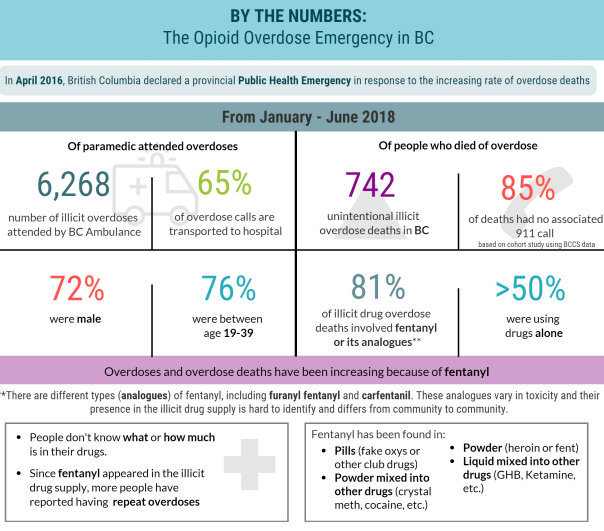Squamish’s Nicklaus Ogborne, 28, died Aug. 22 due to an opioid overdose.
His mom, Eveline wants people to know that her son was so much more than another statistic in the ongoing drug crisis.
“These people are people and they need help. They are in all parts of our society,” she told The Chief over the phone from her home in West Kelowna, her voice often choking up with emotion during the conversation.
Ogborne loved kiting, biking and hiking, but he was also a successful businessman, she said. He installed drive-thru apparatus with a team he put together, his mom said.
“He wasn’t down and out. He had so much support and he obviously made something of himself,” she said.
She also wants people to know that her son, like so many of the thousands of others who have died in this rash of overdoses, came from a stereotypically good family.
“I am a retired professional who raised my children — he is the middle child of three — with all l believed would develop them into kind, considerate, helpful contributors to their community. They attended the local school, played sports and music and helped the parents volunteer in the community. They deeply loved family,” she said. “He was loved from all sides, and he knew it,” she added.
Eveline was a windsurfer, and the family spent many summers at a cottage on the water, so it was natural that her son took to kiteboarding, which is what he was known for by many in Squamish.
Over the years, Ogborne and his cousin travelled, following the wind to kiteboard, his mom said.
He was raised in Union, Ontario in a home on a two-acre lot with a ravine. When he started school, the teachers noted how well–rounded he was, she said.
“They said, ‘Wow, this kid has a wealth of information,” she recalled, with a soft chuckle. “He was bright-eyed and soaked things in.”
He was a happy-go-lucky kid up until about Grade 12.
When he had an ingrown toenail treated, the doctor gave him a prescription for Oxycodone. His parents were concerned right away about the drug possibly being addictive, but the doctor reassured them their son hadn’t been given enough to become hooked.
But soon they saw a change in Ogborne as he began experiencing problems with substance abuse.
Drugs, however, had not been a problem in his life for the last while, his mom said.
“He was as happy as could be,” she said. Friends have also said that he was not struggling with addiction during the last year.
What precipitated his death was a very Squamish scenario. He had climbed three mountains in one day, for the heck of it.
Afterward, his heart was beating irregularly, and so he headed to the hospital. His mom was told he ended up with opioids after that visit.
A short time later, he overdosed.
“This was just an accident. It just happened. It wasn’t supposed to be,” said Eveline.
The BC Coroners Service and Vancouver Coastal health do not release specific information on individuals.
A spokesperson for the coroner did say in an email that an investigation into the death of a male in his 20s on Aug. 22 was underway.
The Chief has requested to see that report when it is complete.
All physicians in B.C. are expected to prescribe opioids according to the standards set out by the College of Physicians and Surgeons of British Columbia, a spokesperson for VCH said.
"Opioids are essential medications for the treatment of pain and although they carry a risk of addiction, that must be balanced in every clinical situation against the risks created by the under-treatment of pain which also include addiction."
The health authority also directed The Chief to The 2017 Canadian Guideline for Opioids for Chronic Non-Cancer Pain. The first recommendation in the guidelines is that, "when considering therapy for patients with chronic non-cancer pain, we recommend optimization of non-opioid pharmacotherapy and non-pharmacological therapy, rather than a trial of opioids."
The Province of B.C. has recently filed a class action lawsuit against more than 40 different opioid drug companies. The suit claims the companies and their distributers knew or should have known that their product was addictive.
And last week, Ginette Petitpas Taylor, federal Minister of Health, and Judy Darcy, Minister of Mental Health and Addictions in B.C., announced a bilateral agreement to invest a total of $71.7 million— $33.98 million from the Government of Canada, and $37.76 million from the province — to combat the crisis by making more treatment available.
"In British Columbia, we are escalating our response to this crisis every single day. Lives are being saved every day at overdose prevention sites; by connecting people to treatment; by expanding the available treatment options; and by training more prescribers," Darcy said in a news release.
"We will continue to build a system where people who need help can receive it quickly and where addiction is no longer treated as a moral failure tainted by shame, but as the health issue that it is.”
For more information on the crisis, go to www.bccdc.ca/ and towardtheheart.com




